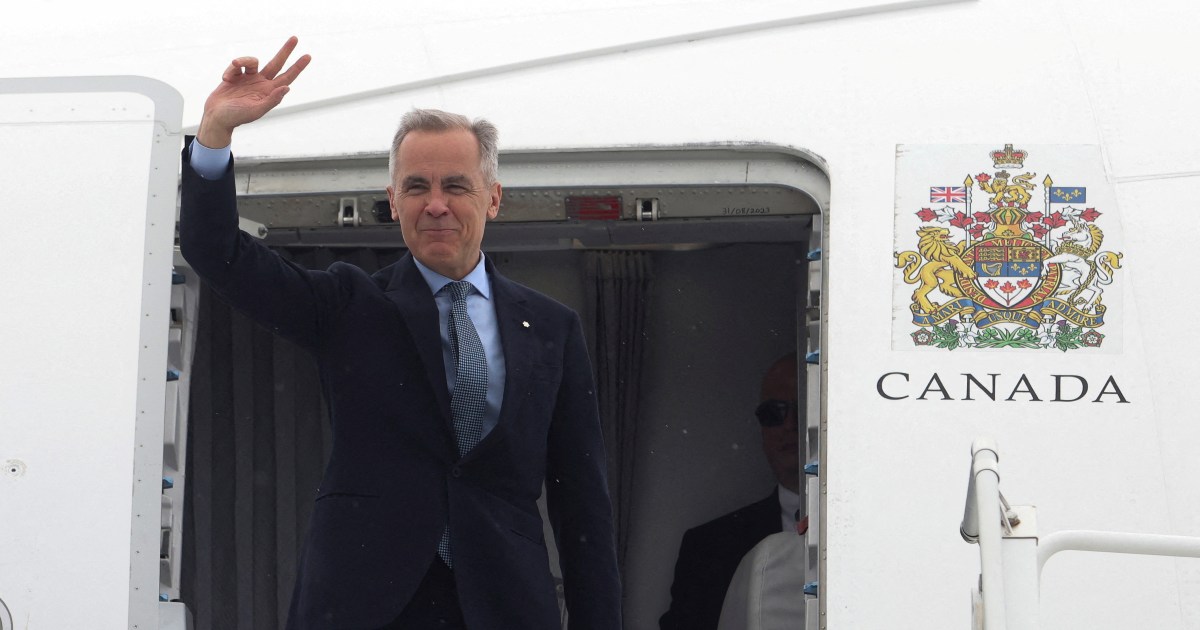Canada is a haven for pleasing myths.
One agreeable caricature popular these days is of a land and a people united in happy solidarity to resist an unpopular president clamouring to add Canada as the 51st star on the stars and stripes flag.
Uncomfortable truth be told, more than a few Canadians are not wishing Mark Carney all that well as Canada’s Harvard-trained technocrat-turned-prime minister meets today for the first time the domineering commander-in-chief of the United States, Donald Trump.
A fair share of Canadians – still smarting from the Liberal Party’s remarkable revival on election night last week – will be rooting for the other guy who keeps talking about erasing the “artificial line” that separates the two bordering nations.
While Carney insists that Canada’s sovereignty is non-negotiable, I suspect Trump will continue to bellow privately and publicly that his ungrateful northern neighbour, having mooched off the US for far too long, best join it to form one “beautiful country”.
Despite broad expressions of new-found Canadian nationalism, including the boycott of US-made stuff and travel south of the 49th parallel, Trump has good reason to pursue his fever dream of a swollen empire.
The prickly fact Carney and company are loath to admit is that in parts of Canada, the idea of joining the US is not as radioactive as it ought to be.
The proof is in the polling.
A recent survey revealed that 18 percent of Conservative voters would be eager, apparently, to swap O Canada for a rousing rendition of the Star-Spangled Banner.
Let us pause to consider the jarring significance of this fantastical sentence.
Many modern-day ideological descendants of the party of Sir John A MacDonald – one of Canada’s founding fathers, as well as a drunkard and racist – are content to trade in their Canadian citizenship to declare an oath, hand-on-malleable-heart, to America.
The sobering story gets even more alarming the further West you venture.
According to the same poll, a halting 21 percent of Albertans would say “yes” to being absorbed into Trump’s ugly, disfiguring vision of America, where cruelty and vindictiveness are the defining governing ethos.
This is not the petering, verging on irrelevant sovereignty movement that has, at times, traumatised Canada since the late 1950s. This is not Quebec nationalists shielding and asserting their identity, language, and cultural survival.
No, this is a loud, disconcerting swath of the West – perpetually angry, isolated, and nursing a decades-long grievance – flirting not just with separation, but pining, it seems, for annexation.
For Canada’s cockeyed annexationists, Trump represents salvation from myopic politicians in Ottawa beholden to the stranglehold exercised in election after election by smug voters in Ontario and Quebec.
In this stubborn context, Trump’s crude, imperial designs are being treated as an opportunity, not a threat.
His pugnacious image of America, with its love for deregulation, muscular independence, and rejection of every stifling ounce of progressiveness, resonates with scores of Canadian Conservatives who feel abandoned by politicians more interested in currying favour with urban, “woke” constituencies in Toronto, Montreal, and beyond.
Trump’s combustible rhetoric – couched in the language of “injustice”, exceptionalism, and disdain for “globalist elites” – calls to a brewing sense of disillusionment with the existing state of Confederation among a growing number of Canadians.
The president’s calculated provocations – amplified by social media and sympathetic “alternative” news outlets – have bolstered the perception that Canadian federalism is “broken” and that the powers-that-be are not listening.
In this corrosive climate, defeated Conservative leader Pierre Poilievre must finally reckon with his role in promoting a narrative, grounded in estrangement and dysfunction, that has deepened divisions and eroded trust in public institutions.
In his parochial pursuit of power, Poilievre disparaged the nation he sought to lead, echoing – often almost verbatim – Trump’s seething resentment and polarising bombast.
The US president’s cynical efforts to undermine an erstwhile ally’s independence were abetted by a preening politician anxious to declare, again and again, that Canada is crumbling from within.
The potentially dire, unintended consequences are now becoming apparent.
Like all demagogues, Trump is adept at sniffing out vulnerability and weakness. And while most Canadians remain loyal to the Maple Leaf and are offended to their core by his oafish overtures, fissures are showing.
Trump, predictably, is exploiting them with, alternatively, bouts of performative menace and a grating grin.
Although she will dismiss the appellation, Alberta Premier Danielle Smith is, by word and deed, the patron saint of the province’s emboldened separatists.
Smith’s “Alberta Sovereignty Act” is not the benign assertion of provincial rights her allies inside and outside the legislative assembly claim it to be.
This is, in effect, Alberta declaring, sotto voce: “We’ll pick and choose which laws to follow.”
It is a blatant rebuff of federalism and an affront to the constitution itself.
Smith’s broadsides, denouncing central Canada’s betrayal and control, parallel Trump’s noxious modus operandi.
This is not about building pipelines or slashing taxes any more. It is about fomenting a sense of Alberta-as-victim, grooming a citizenry to view Canada not as home, but as an unyielding straitjacket.
It is Trumpism in oil-stained cowboy boots.
A coalition of national leaders – along what constitutes Canada’s narrow political spectrum – must take seriously the disaffection animating in the West.
That means embracing compromise and a wholesale commitment to the imperative that Canada’s always delicate unity cannot be taken for granted.
If the curse of alienation spreads, if more and more Westerners see themselves as outsiders in their own country, then the absurd will become the imaginable.
Perhaps not annexation, but fragmentation. And with that, the very notion of Canada as a coherent, inclusive nation could soon be at stake.
Trump’s pernicious prescriptions are not only a portal into an uncertain future, they pose an existential danger. Canada is confronting the remote, yet conceivable risk, of breaking not with a bang, but by invitation.
Source: Aljazeera

Leave a Reply